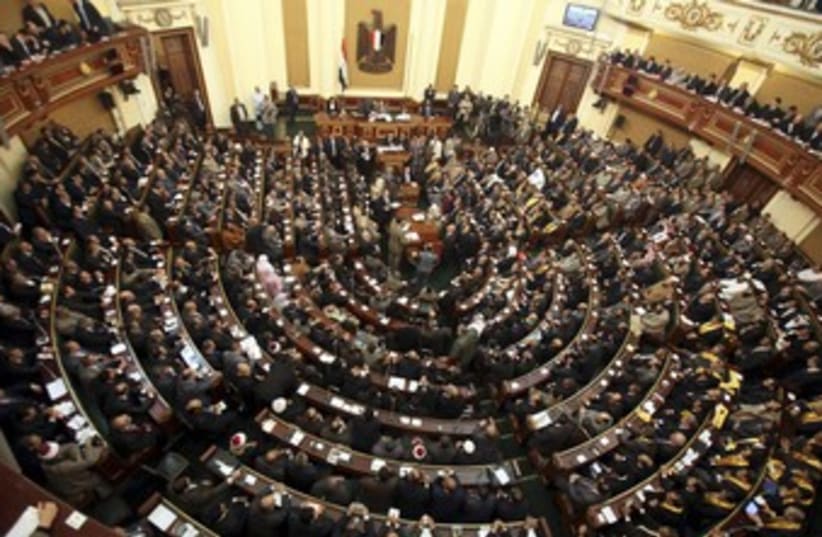Parliament criticizedArmed with popular legitimacy from Egypt's freest vote since army officers ousted the king in 1952, the Muslim Brotherhood and ultra-conservative Salafi Islamists now dominate parliament following a tortuous voting process that ended in January.Most analysts agree that the Brotherhood, formed in 1928, is seasoned by decades of patient grassroots work and is unlikely to rush to impose purist Islamic codes, tear up Egypt's peace treaty with Israel or confront the United States.But the Brotherhood has become more outspoken since the parliamentary vote. It has demanded that the military-backed prime minister and cabinet quit. Under the transition, the ruling army, not parliament, picks the government.In a statement on Saturday, the Brotherhood again criticized Prime Minister Kamal al-Ganzouri, describing his government's performance as "a failure". It was also critical of the army, saying its backing for the government raised questions about whether it wanted to "abort the revolution".Under Egypt's interim constitution, the new assembly must draft a new constitution within six months once it is formed. The new document will replace a one that helped keep Mubarak in power for three decades and was a cornerstone of his rule.The upper and lower house of parliament agreed in a meeting last week that lawmakers would select half the assembly's members from within their own ranks and pick the other 50 members from other parts of society.That decision irked liberals, who said that although Islamists have a right to impose their will via a majority on legislation, they should not dominate an assembly that will draw up a permanent document to represents all Egyptians."The Islamic wing, both the Muslim Brotherhood and the Salafists, are aiming to dominate the drafting of the constitution; this behavior clearly threatens the national unity of Egypt," the Egyptian Social Democratic statement said.Non-parliamentary members may come from trade unions, civil society groups and from the public at large. Members of the assembly were picked by simple majority. Some organizations nominated their own members, but were still subject to a vote.
Liberals boycott Egypt's constitutional assembly
Islamist-controlled parliament selects members for constitution-writing body; liberals and leftists withdraw.

Parliament criticizedArmed with popular legitimacy from Egypt's freest vote since army officers ousted the king in 1952, the Muslim Brotherhood and ultra-conservative Salafi Islamists now dominate parliament following a tortuous voting process that ended in January.Most analysts agree that the Brotherhood, formed in 1928, is seasoned by decades of patient grassroots work and is unlikely to rush to impose purist Islamic codes, tear up Egypt's peace treaty with Israel or confront the United States.But the Brotherhood has become more outspoken since the parliamentary vote. It has demanded that the military-backed prime minister and cabinet quit. Under the transition, the ruling army, not parliament, picks the government.In a statement on Saturday, the Brotherhood again criticized Prime Minister Kamal al-Ganzouri, describing his government's performance as "a failure". It was also critical of the army, saying its backing for the government raised questions about whether it wanted to "abort the revolution".Under Egypt's interim constitution, the new assembly must draft a new constitution within six months once it is formed. The new document will replace a one that helped keep Mubarak in power for three decades and was a cornerstone of his rule.The upper and lower house of parliament agreed in a meeting last week that lawmakers would select half the assembly's members from within their own ranks and pick the other 50 members from other parts of society.That decision irked liberals, who said that although Islamists have a right to impose their will via a majority on legislation, they should not dominate an assembly that will draw up a permanent document to represents all Egyptians."The Islamic wing, both the Muslim Brotherhood and the Salafists, are aiming to dominate the drafting of the constitution; this behavior clearly threatens the national unity of Egypt," the Egyptian Social Democratic statement said.Non-parliamentary members may come from trade unions, civil society groups and from the public at large. Members of the assembly were picked by simple majority. Some organizations nominated their own members, but were still subject to a vote.